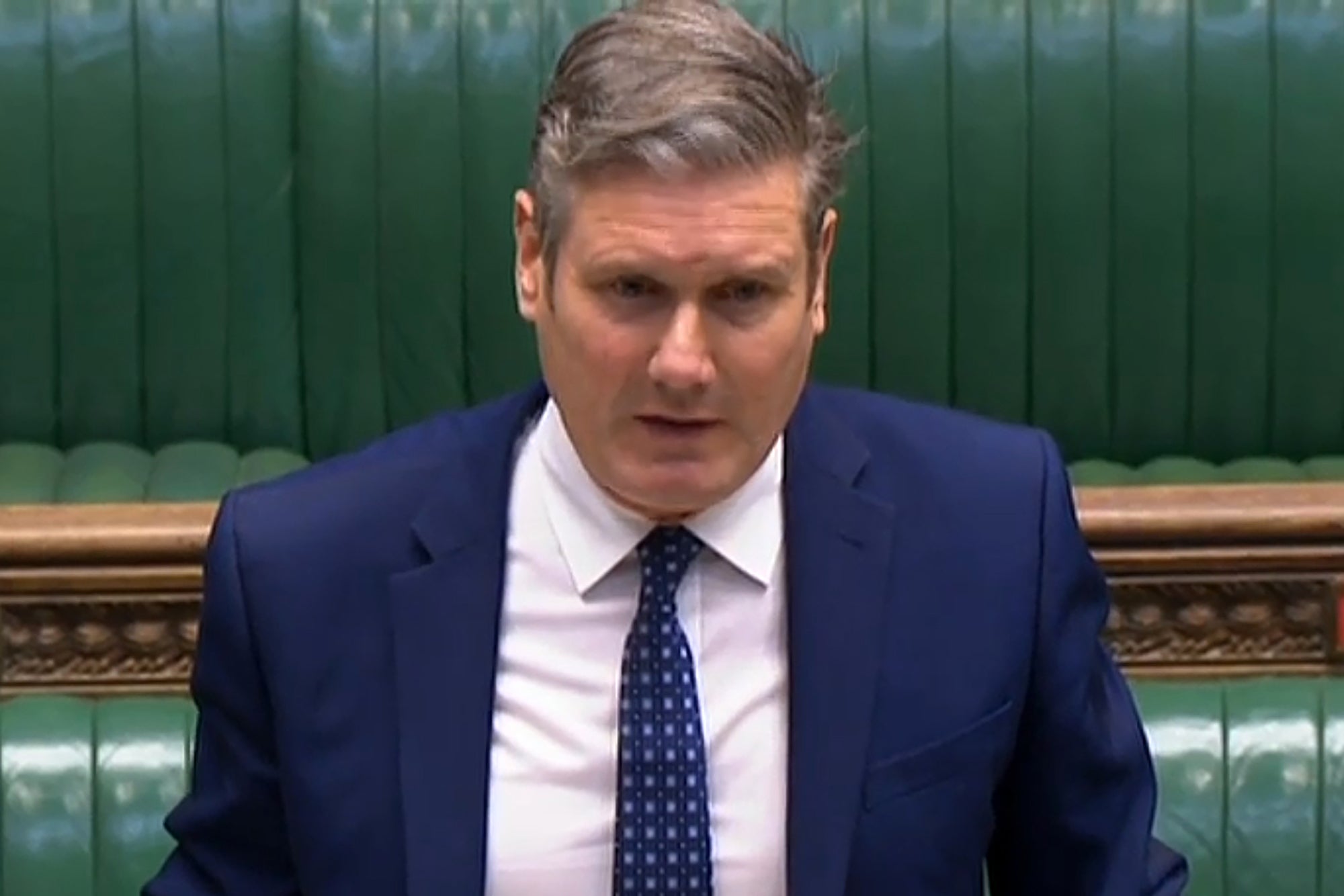Keir Starmer has to decide where he stands on coronavirus restrictions before asking questions
The leader of the opposition will seem to be playing politics with the serious business of controlling Covid-19 if he doesn’t decide what Labour’s stance is on lockdown, says John Rentoul


Does the Labour Party support the 10pm closing time for pubs and restaurants or not? We know that it is called Prime Minister’s Questions, but if the leader of the opposition cannot answer that question, it is unwise for him to ask about it.
The Labour leader started off well, asking Boris Johnson to accept that the loss of information about positive tests had put lives at stake. The prime minister declared unconvincingly that the missing data did not change “in any way” the government’s assessment of the spread of the disease. This makes no sense: it obviously means that the situation is worse than previously thought.
Keir Starmer had a prepared line against Johnson, which he deployed effectively. The prime minister keeps on making mistakes, he said, like a driver who crashes the car and then drives off, looking in the rear-view mirror and asking, “What was that all about?” This was “government by hindsight”, said Starmer, neatly returning one of the prime minister’s better lines against him – calling him “Captain Hindsight” – with interest.
After that, however, Starmer’s questions lost their force, because it wasn’t clear what Labour’s position was. He said that the number of cases in Bury, Burnley and Bolton had risen dramatically since local restrictions were imposed. He demanded an explanation, but it was unclear whether he thought this proved that lockdowns don’t work, or that the restrictions are not strict enough. So far, Labour has leaned towards saying that the government has gone too far in relaxing restrictions, but if Starmer is suggesting a return to a total lockdown in northern towns, he wasn’t saying so today. Perhaps he was hoping the prime minister would slip up again and blame local people for the spread of infections, as when he used the word “blase” five days ago.
Instead, Johnson saw Starmer’s weakness and pounced on it, reminding the Labour leader that he had supported the rule of six, but last night his MPs abstained in the vote on it.
Starmer moved on to the next question of coronavirus regulations, the 10pm closing time, and asked on what evidence it was based.
This was a repeat of Labour’s tactic last night. Justin Madders, the shadow health minister, had demanded to know what evidence the government had for including children in the rule of six, unlike in Scotland and Wales, where children under 12 are not counted towards the six. The government doesn’t have any, of course, but Labour abstained all the same.
There is a danger for Starmer that he will seem to be playing politics with the serious business of controlling the virus. When he asked for evidence for the 10pm closing time, did that mean that, when he doesn’t get it, Labour will abstain again on Monday? Or was he threatening to join the likes of Sir Graham Brady, Steve Baker and David Davis in voting to let drinkers drink on?
Starmer knows the government has no evidence for shutting the pubs at 10pm, because it was a compromise agreed by warring cabinet ministers – mainly as a way of avoiding more drastic action, such as shutting pubs altogether.
Growing numbers of Tory MPs think that public opinion is starting to shift against the restrictions, even as the number of cases continues to rise. But it would be strange for Labour to join them. Starmer may believe that the 10pm rule causes more infections than it prevents: the pictures of large numbers of what journalists call revellers spilling out on to crowded streets at 10pm has convinced some people that the rule does more harm than good. But there is no evidence for that view either.
Until Starmer decides which way to go – more restrictions or fewer restrictions – he is reduced to supporting the government, which has been his formal position from the start, and criticising aspects of rules at the edges. While all the time giving the impression that the prime minister has been incompetent and too slow.
It is not an impossible strategy, but it is vulnerable to counter attack, as from Johnson today, when he said: “That’s not new leadership, that’s no leadership.”

Join our commenting forum
Join thought-provoking conversations, follow other Independent readers and see their replies
Comments